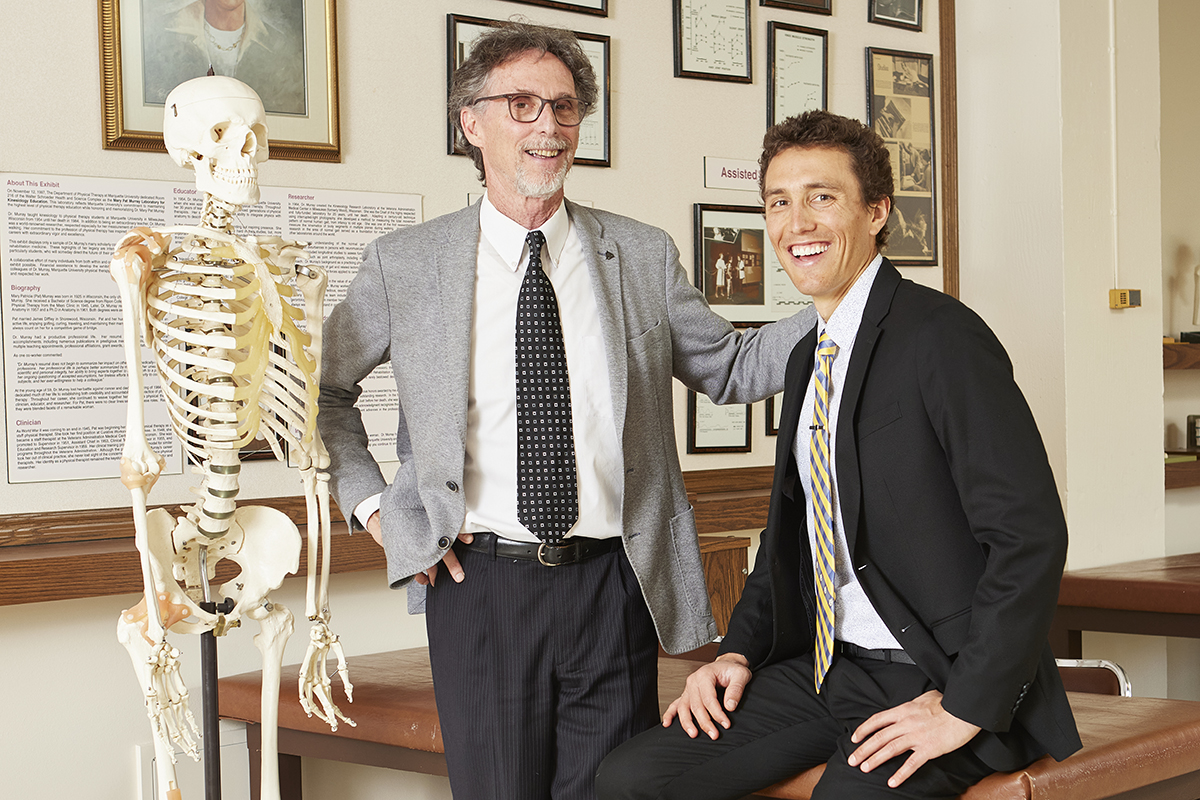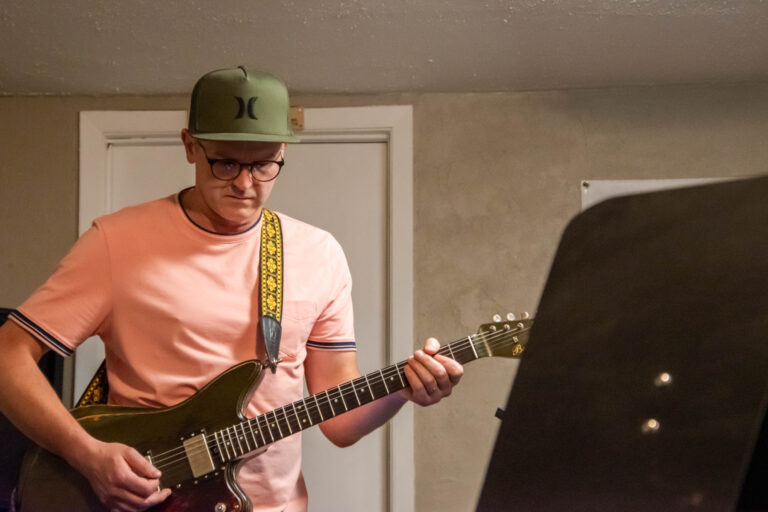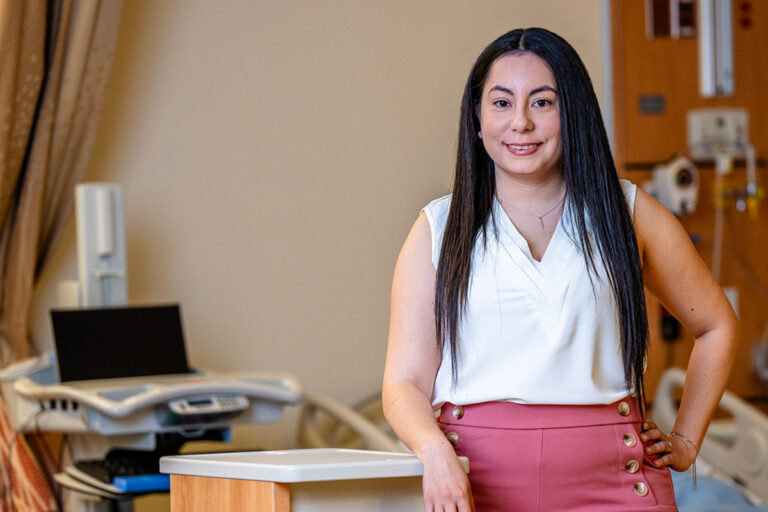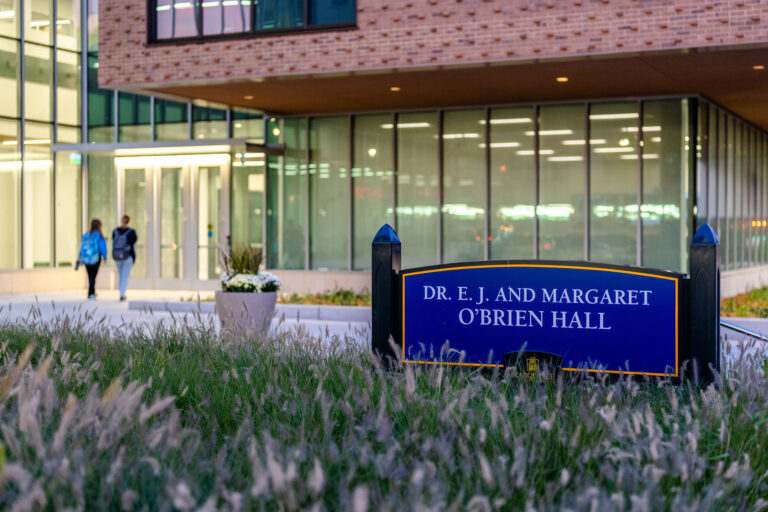Thanks to the pioneering Dr. Donald Neumann, Marquette has an esteemed reputation in kinesiology. Now, emerging leader Dr. Jacob Capin is ready to take the helm
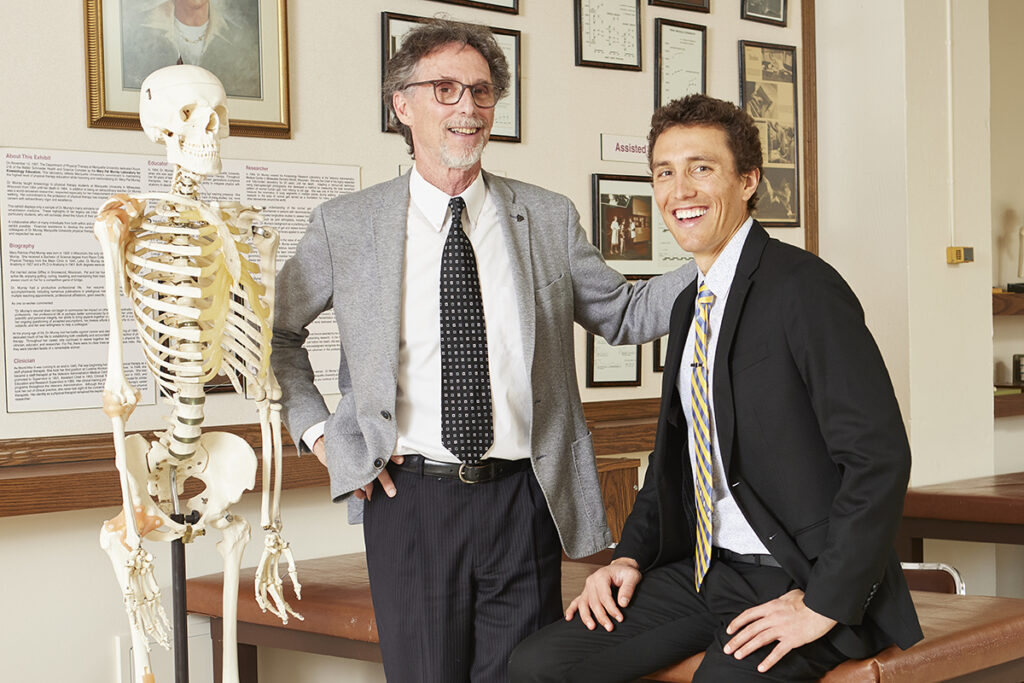
By Anna Funk, photos by Tom Grimm
Dr. Donald Neumann, professor emeritus of physical therapy, literally wrote the definitive kinesiology textbook used worldwide. He’s defined excellence in kinesiology instruction at Marquette for decades and wasn’t ready to hand the specialty over to just anyone. Fortunately, his replacement, Dr. Jacob Capin, is a young scientist already making a mark on the field.
But the real beginning of this story is before even Neumann, with his predecessor, Dr. Mary Pat Murray, whom Neumann replaced in 1986 after her death in 1984. “She set up a very strong foundation for kinesiology being very prominent at Marquette. She was probably infinitely better than either of us,” says Neumann of Murray, who has a lecture hall named for her in the Walter Schroeder Health Sciences and Education Complex. “If there’s any lineage in this story, it’s these three people in a row that have set a high standard for kinesiology instruction at Marquette.”
Today, the kinesiology legacy promises to continue as Capin sets up his new lab and settles into life at Marquette. “As one of my research techs said recently, we’re moving and grooving,” says Capin, an assistant professor of physical therapy. “It feels so much like home here already. I have a great community at Marquette and where I live — the people are wonderful. I love it here.”
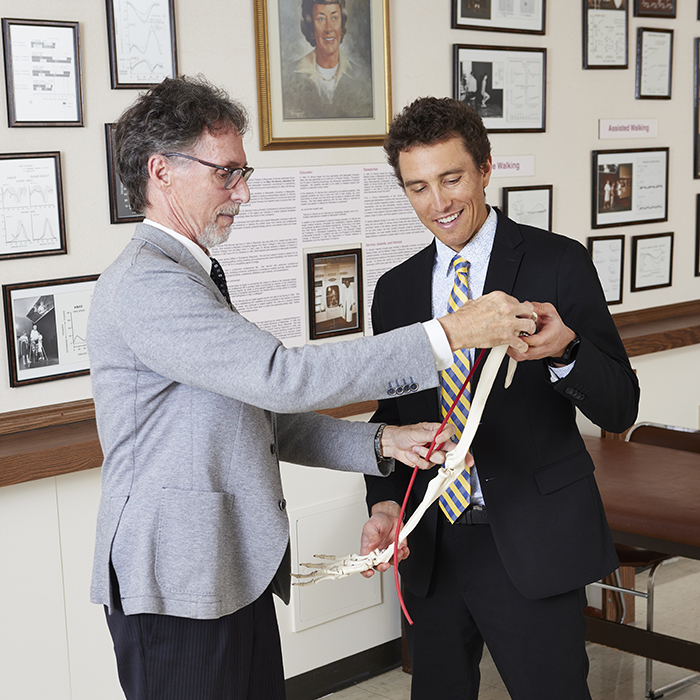
A PASSION FOR KINESIOLOGY
Neumann’s interest in physical therapy — and kinesiology, its specialty focused on the mechanics of personal movement and its impact on broader health — was personal: He had experienced a motorcycle crash at 19 that resulted in a number of orthopedic injuries. His hip especially gave him trouble, and he would go on to study the hip — among many other parts of the body — for the duration of his 35-year career.
Along the way, Neumann made his mark in research, teaching at Marquette and service to the field around the world. The first edition of his textbook, Kinesiology of the Musculoskeletal System, came out in 2002, about the same time physical therapy first became a professional doctoral degree. He’s been maintaining the text – which has since been translated into 10 languages and is considered the gold standard in the field – ever since. He’s been awarded an astonishing four Fulbrights, two of them scholarships and two senior specialist grants, which have sent him to Lithuania, Hungary, Japan and Ireland. He says that in each of these places the main draw was for him to “go where the need is most,” and that the door was opened by his book with its worldwide following. Neumann retired from full-time teaching in 2020, though he will continue to update his textbook for at least a few more editions.
The secret to his success? “I like it. I like what I do,” he says. “It comes naturally.”
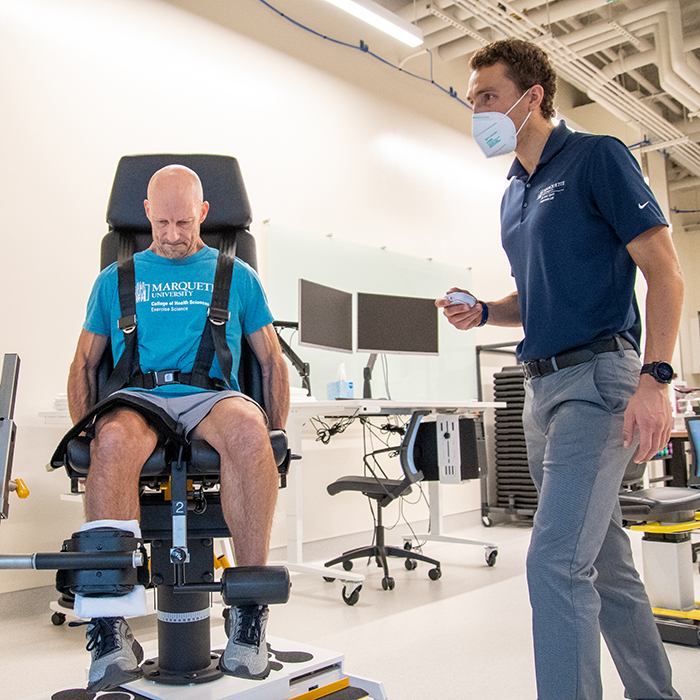
A PASSION FOR HEALTH
Like Neumann, Capin’s interest in the field is personal. A lifelong athlete, he played Division I basketball at Campbell University, where he majored in kinesiology. “It’s the perfect merging of sports and science and academia and physical therapy and rehab all into one,” he says.
When his college basketball career came to a close, he knew he’d need a new endeavor to keep active. He chose triathlon. “Literally the day after our team lost in the NCAA Tournament my senior year of college — we were still at the hotel for the tournament — I woke up early to get on the bike and get a run in,” he says. “I did my first triathlon three months later.” Today, Capin competes as an elite amateur for the Every Man Jack triathlon team.
This snapshot of Capin’s history is very relevant: He is launching a major research study about the long-term health and function of former collegiate athletes, both those who’ve had major sports-related knee injuries and those who haven’t. “My research and teaching very much informs my personal life,” he says. “And my exercise very much facilitates and enhances my professional life.”
A core hypothesis is that former athletes may actually be less active, and therefore less healthy, than their non-athlete peers. That’s because current athletes make habits around high amounts of vigorous physical activity that’s highly structured and highly motivating, and tend toward greater sedentary behaviors outside their sport. Once the sport ends, they may lose the activity, but maintain the sedentary habits. “If the patterns of activity outside of the sport continue, and you no longer have that sport there, then potentially — this is all hypothetical — you are less active,” says Capin. Most studies to date have looked at predomi-nantly male, professional athletes. Capin’s work will be an important expansion for the field, as the results will be relevant for a much larger group en-compassing men and women, as well as amateurs in college competing at any level.
Supporting this work is a distinguished National Institutes of Health Director’s Grant, which Capin was awarded in October 2021. The five-year, $1.9 million grant is awarded through the NIH’s High- Risk, High-Reward Research Program to exceptional young scientists embarking on independent research careers. He is the first — and only — recipient from Marquette University and likely the first in his field. “I am super grateful to have this funding,” Capin says. “I believe I’m the first physical therapist ever to receive it … I am beyond excited to have this opportunity to conduct research on long-term health in athletes.”
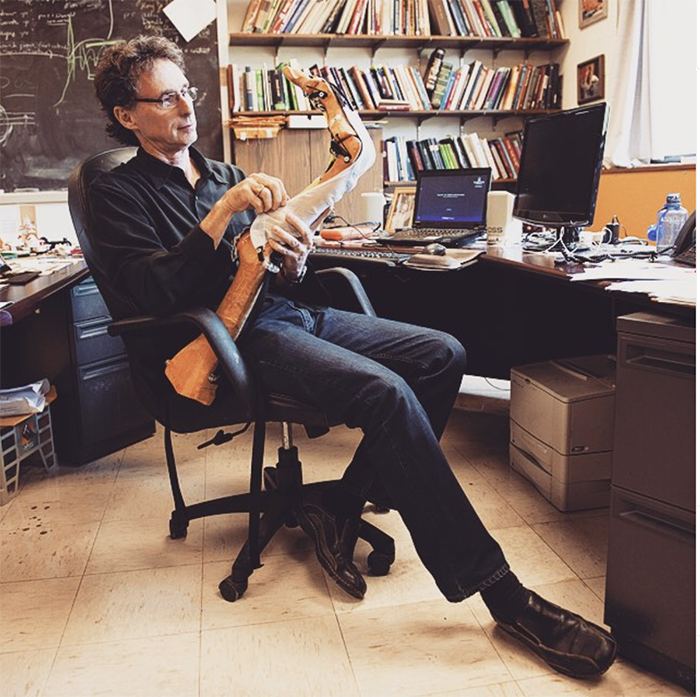
IN THE RIGHT PLACE
Neumann and Capin speak highly of each other. They didn’t know each other before Capin came to Marquette, though Capin says he certainly knew who Neumann was — not surprising, given the prevalence of his textbook. The duo have even spent some time together outside the classroom: When Capin first arrived in town, Neumann invited him out to an organic pizza farm an hour west of Milwaukee where he was playing guitar in the band.
“He’s such a big name in the field, and a tremendous scholar and mentor and person,” Capin says of Neumann. “He is so passionate and enthusiastic and knowledgeable about kinesiology and all of its related applications. He’s also just a really kind person.”
In the spring of 2022, Neumann mentored Capin as he taught his first course, Kinesiology I, Marquette’s first-year doctoral physical therapy course. It went well. “I have a lot of respect for Jacob. I think he’ll do a great job,” he says. “You know, he’s about the same age I was when I started.”
Though Capin’s appointment will keep him occupied with research 80 percent of the time, he’ll continue to teach Neumann’s Kinesiology I course — now Capin’s Kinesiology I course — each spring. “It’s a really exciting time in life,” Capin says. “I feel very much like I’m in the right place doing the right thing. And I’m grateful for all of it.”
